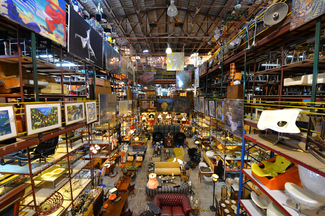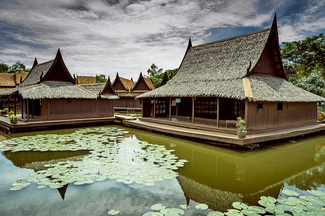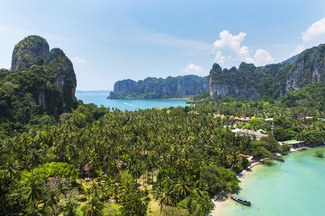THAI BUDDHISM – THE HEART OF A CULTURE
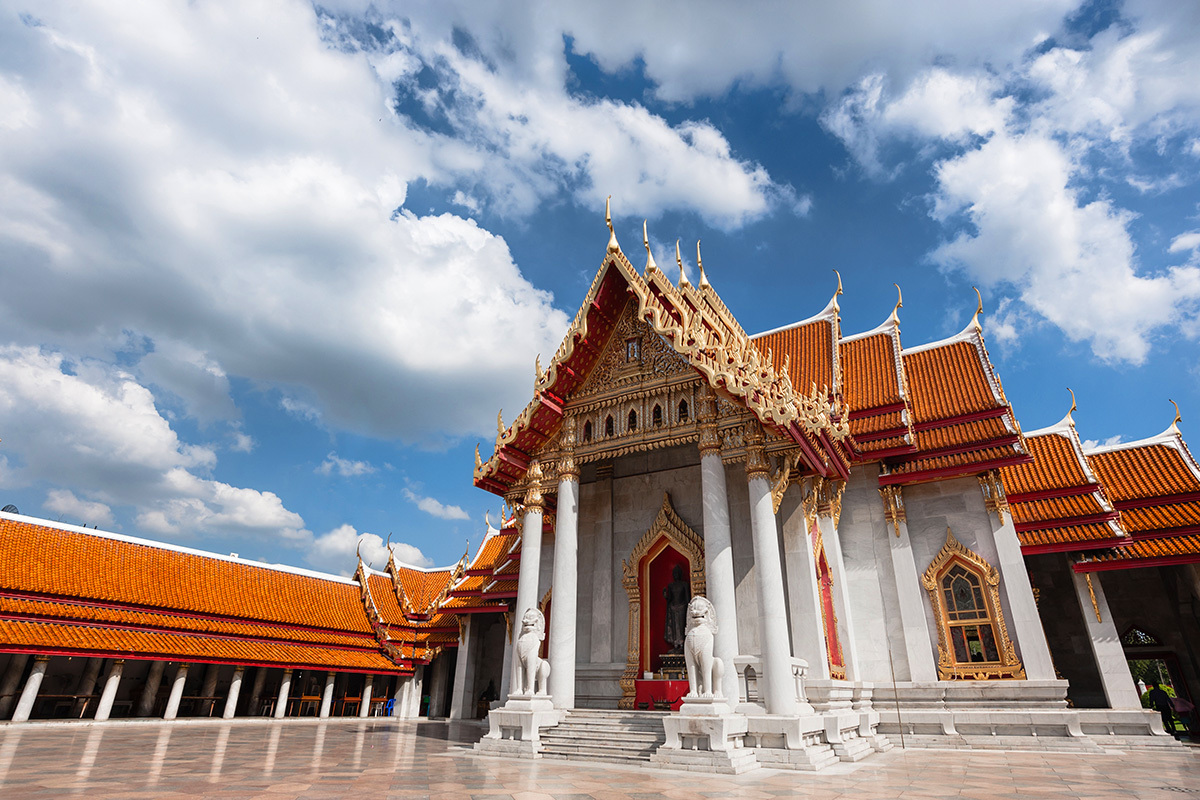
Buddhism has had a profound effect on shaping Thai culture and character, especially so in their attitude to changing situations and events. There is a natural acceptance of the vagaries of happenstance and fate, a cheerful stoicism that lies at the very core of the Thai character, a desire to make the best of every moment, no matter how dull or dire.

Thais pay respect to monks at Wat Dhammakaya, Pathum Thani Province
A great deal of the charm of Thai manners and their relaxed way of life, the avoidance of extremes in behaviour and speech, the control of one’s emotions for the sake of others and an acknowledgement of the transitory and impermanent nature of life all stem from core Buddhist precepts.
Buddhism came to Southeast Asia as early as the third or fourth century BC from India at the time of the Emperor Ashoka and passed into Thai culture via the Mon and Khmer kingdoms during the 10th and 12th centuries. Theravada Buddhism was introduced from Sri Lanka during the reign of King Ramkamhaeng in the 13th century and has gradually evolved into a uniquely Thai interpretation of Theravada beliefs.

Khmer temples, Phimai Historical Park, Nakhon Ratchasima Province
The Mahayana tradition is still widely practised by most people of Chinese descent and the differences in practice are noticeable. At their numerous shrines and temples in the cities and countryside the piety of the faithful is evident in the ringing of bells, the clouds of incense smoke that linger heavily in the air, the burning of paper objects and money meant for those already consigned to the afterlife.
The Mahayana influence in Theravada practice is clearly apparent in the worship of Buddha images, and animist beliefs that predate Buddhism, and the power Thais ascribe to the magical, mystical and astrological forces of the universe have served to add subtle nuances that make Thai Buddhism distinctive and idiosyncratic.

The Big Buddha statue, Phuket
Thais place a great deal of faith in charms and amulets. Most men and a fair number of women too wear at least one amulet as protection from the ills and misfortunes that stalk daily life. Tattoos, for men, also act as talismans to ward off evil. Astrologers too are frequently consulted especially for major ceremonies and rites, providing the auspicious times and dates that will ensure everything is all right on the night.
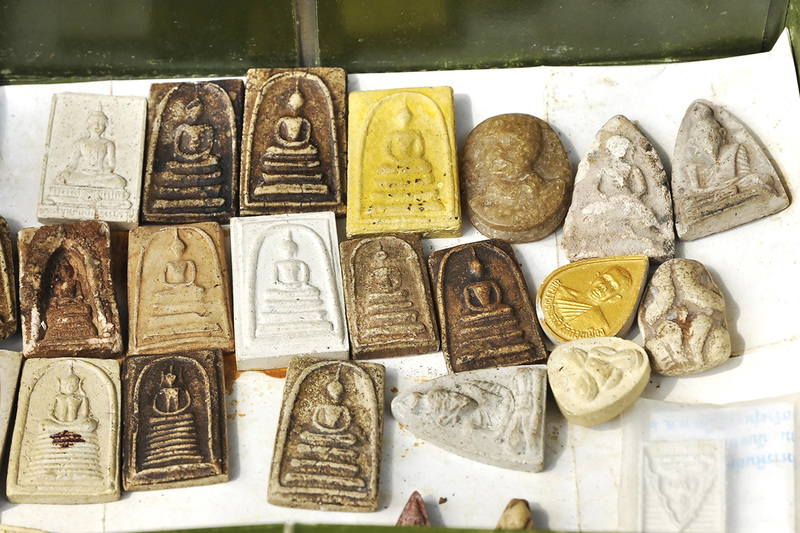
Thai amulets to ward off evil
Another non-Buddhist influence brought from India, Brahmanism, still plays a significant role still in the ceremonial aspects of Thai life and ritual. Brahman priests officiate at weddings and the ceremony itself is almost entirely Brahman in form. Brahman priests preside over major royal ceremonial events, one of the most important being the annual Ploughing Ceremony that marks the beginning of the rice-planting season.
Spirits, or Phi, are everywhere in Thailand and if not properly propitiated can be a source of disturbance and disruption in one’s life. Small houses, placed on a post in gardens and the compounds of office buildings, shopping malls and hotels – the precise location chosen by complicated astrological computations - serve to house the resident spirits, within whose hands lies the power to make life unbearable or bestow good fortune. These spirits are placated by daily offerings of fresh flowers, food and by lighting incense sticks, although at times even this might not be sufficient and expert help is sought from the priests to establish the cause of the problem and offer solutions for its remedy.
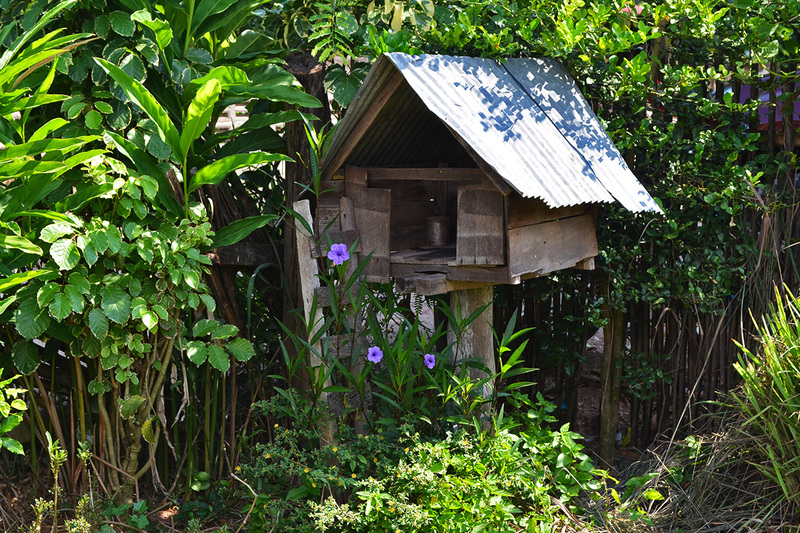
Thai spirit houses can be basic…
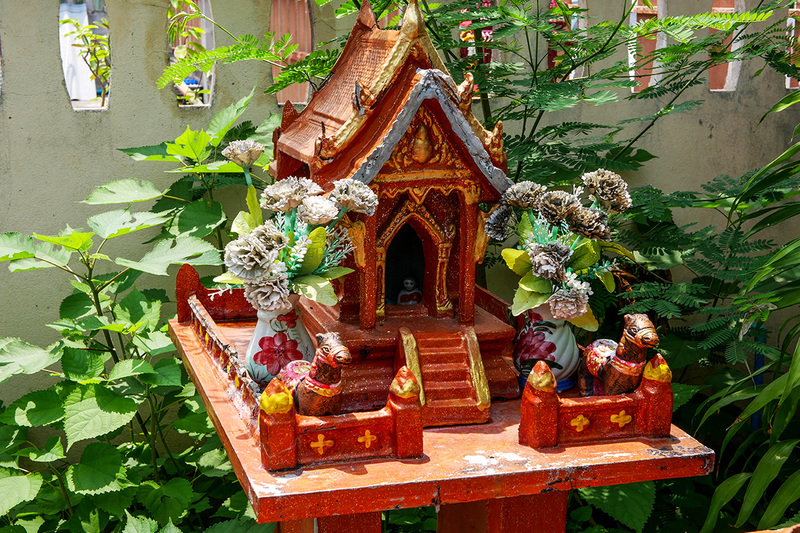
Or deluxe
One of the best known is the Erawan Shrine in Bangkok, which honours the Hindu God Brahma. It was built by the owners of the owners of the Grand Hyatt Hotel in the 1950s during the construction of the building after a number of unfortunate and seemingly mysterious accidents occurred. Since that time the shrine has garnered a reputation for bringing good fortune to anyone who makes the appropriate offerings.
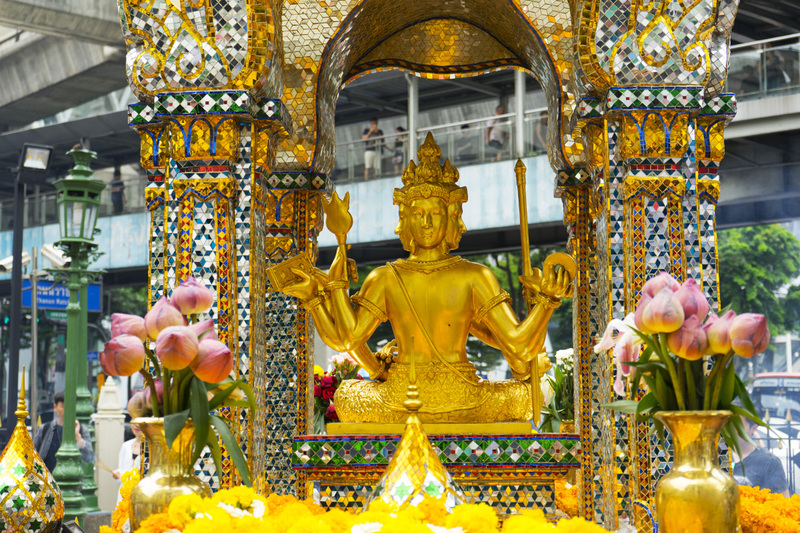
The highly revered Erawan Shrine, Bangkok
To Thais this mix of disparate elements into a cohesive fusional form of religious practice doesn’t seem at all strange, and is indicative of the ease with which Thais adopt and adapt foreign influences to their tastes and graft them onto age-old traditions and festivals. Having existed as a largely agrarian economy for millennia, dependent on the unpredictable elements, variable monsoons, and the occasional natural disaster, the propitiation of potentially malevolent forces must have seemed an eminently pragmatic approach to creating spiritual harmony.
There are on average about 300,000 monks in Thailand and thousands of temples which serve a social as well as a spiritual purpose. Thai Buddhist tradition requires that every male at some point in his life spend time as a monk. Once ordained the young man may remain in the monkhood for a period of time ranging from a week to six months, or for some a lifetime.
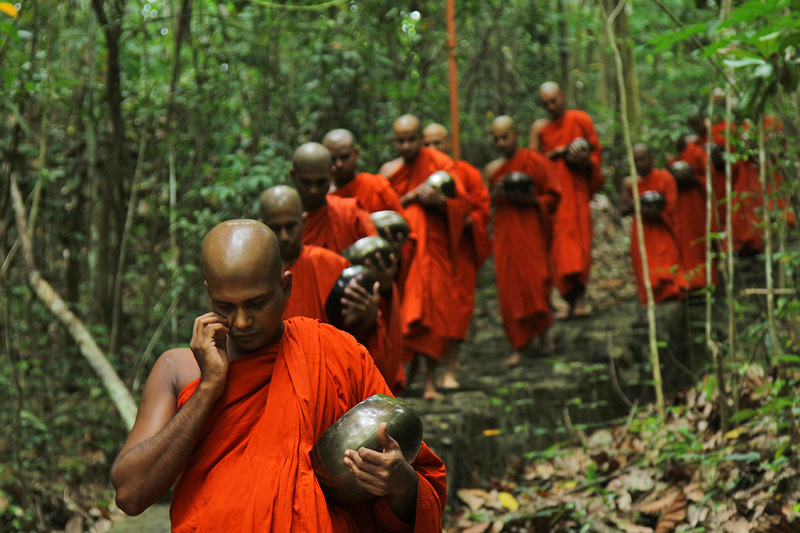
Monks with the collection bowls
The time spent as a monk is seen as a way of offering thanks to one’s parents for the care shown and sacrifices made on the son’s behalf. As women cannot be ordained this is particularly beneficial to the young man’s mother (and other female relatives) who gains merit by her son’s actions and so progresses along her path to Nirvana, and eventual release from the cycle of earthly death and rebirth.
Many Thai kings have spent time in the monkhood, King Mongkut for 27 years. This adherence to religious obligation by the monarchy strengthens its legitimacy and increases the respect felt by the common people, as well as allowing the king an invaluable glimpse of life as lived by his subjects.
For the traveller in Thailand an understanding of how deeply felt their beliefs, and how fundamental to the conduct of daily life they are, is the key to harmonious relations. And, although they are remarkably tolerant of other religions and philosophies, due respect must be given at all times to anything that pertains to Buddhism and its practice.
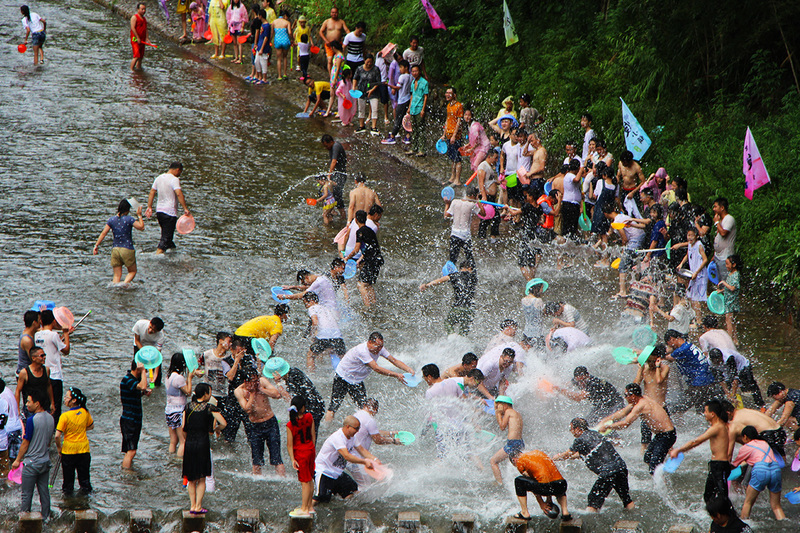
Fun and frolics at the Songkran Festival
Thai festivals and ceremonies, all bound by hallowed traditions, play an integral part in the life of the average Thai. They are at times solemn occasions, but for the most part are joyous and exuberant celebrations to which any and all visitors are invited to participate in and enjoy.










of collaborative energy




Before proceeding to use the website please carefully ready our Terms and Policies
I accept Diwerent's Terms and Conditions and Privacy Policy










